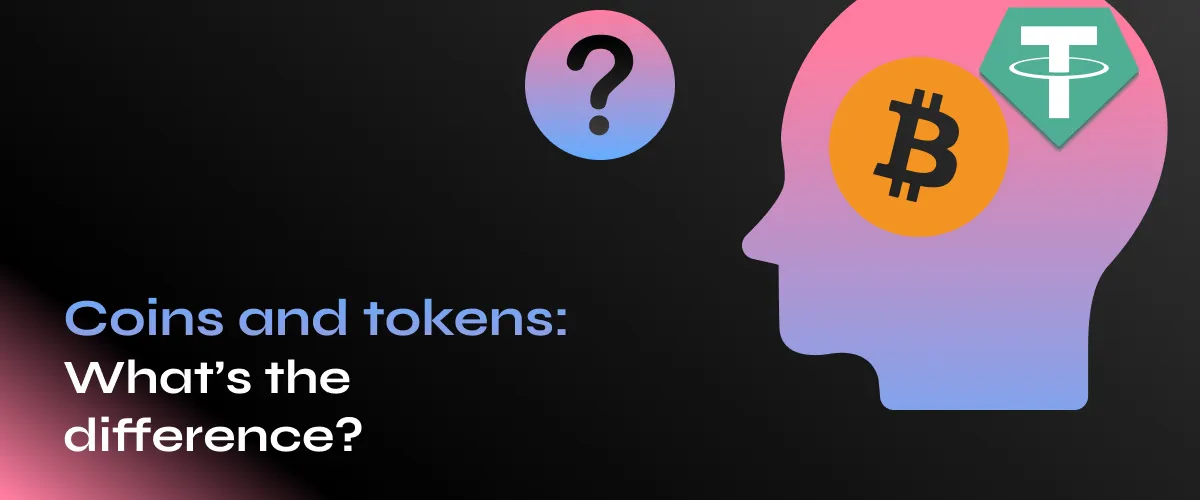Understanding Cryptocurrency Payments: Coins vs. Tokens
The rise of cryptocurrencies has sparked curiosity about digital currencies and their various forms. Among the frequent inquiries in the crypto community, the question of “What’s the difference between a coin and a token?” stands out. While the debate is ongoing, there are distinct characteristics that define each asset. For businesses eager to deploy a crypto payment gateway, understanding the nuances of coins and tokens is crucial.
Key Differences: Coins and Tokens
- Tokens usually exist on other blockchains and provide utility to their projects.
- Coins are primarily used as a form of money.
- GOPayments facilitates acceptance of both tokens and coins as payment.
What is a Crypto Coin?
Coins are defined as digital assets that operate on their own blockchains. The most notable coin is Bitcoin, which serves mainly as a means of payment. Coins function similarly to traditional money, but they also provide opportunities for investment or staking, allowing users to earn rewards in the form of other coins and tokens. Notably, transactions involving tokens may require coins to cover gas fees. For example, sending the SHIB token necessitates Ether (ETH) to cover Ethereum network fees.
Crypto Tokens vs. Coins
|
Bitcoin |
As the first cryptocurrency, Bitcoin remains the largest digital currency globally. Businesses can leverage Bitcoin payments to reach a vast audience of users eager to spend it on goods and services. |
|
Ethereum |
Ethereum, or Ether (ETH), is a powerful coin underpinning the Web 3.0 ecosystem and enabling users to create blockchain-based projects. Utilizing Ethereum payments opens the door to millions of potential customers. |
|
Nano |
Nano is an eco-friendly cryptocurrency with zero transaction fees, making it an ideal choice for businesses seeking to reduce costs while facilitating quick payments. |
|
XRP |
XRP is a highly efficient coin favored by financial institutions for its speed and low costs. Integrating XRP payments can attract users familiar with this widely used digital asset. |
|
Litecoin |
Litecoin, designed to offer faster and cheaper transactions than Bitcoin, is a mature currency with daily transactions in the millions, presenting an excellent solution for businesses. |
Leading Tokens in the Market
|
SHIB |
SHIB has evolved from a meme token to a robust DeFi platform, attracting a massive user base. Accepting SHIB can greatly benefit businesses looking to tap into its popularity. |
|
Tether (USDT) |
As a stablecoin pegged to the U.S. dollar, Tether provides consistency in transactions and allows businesses to benefit from cryptocurrency without exposure to volatility. |
|
Binance USD (BUSD) |
BUSD, the native stablecoin of the Binance exchange, is widely used for transactions. Businesses linked with Binance can benefit from accepting this stable currency. |
|
Huobi Token (HT) |
HT holders gain various perks and can participate in governance decisions. This token can serve as an effective payment option for businesses utilizing the Huobi platform. |
|
POODL |
POODL is another innovative token with potential utility within the crypto space, appealing to businesses keen to engage with its community. |
How to Accept Cryptocurrency Payments
GOPayments offers a suite of tools enabling businesses and individuals to seamlessly set up a crypto payment gateway:
-
eCommerce plugins:
Compatible with major platforms like PrestaShop, WooCommerce, Magento 2, and Shopify. -
Crypto invoices and PoS terminal:
Create crypto invoices and utilize a virtual Point-of-Sale terminal for transactions. -
API:
Leverage GOPayments’ API for tailored coin and token payment solutions. -
Donations:
Deploy crypto donation widgets and links. -
Payouts:
Effortlessly manage mass payouts as salaries, bonuses, or rewards.
Understanding the difference between coins and tokens enhances the ability to integrate cryptocurrency payments effectively. With GOPayments, businesses can feature over 100 different cryptocurrencies, unlocking the potential for enhanced customer engagement and streamlined transactions.
